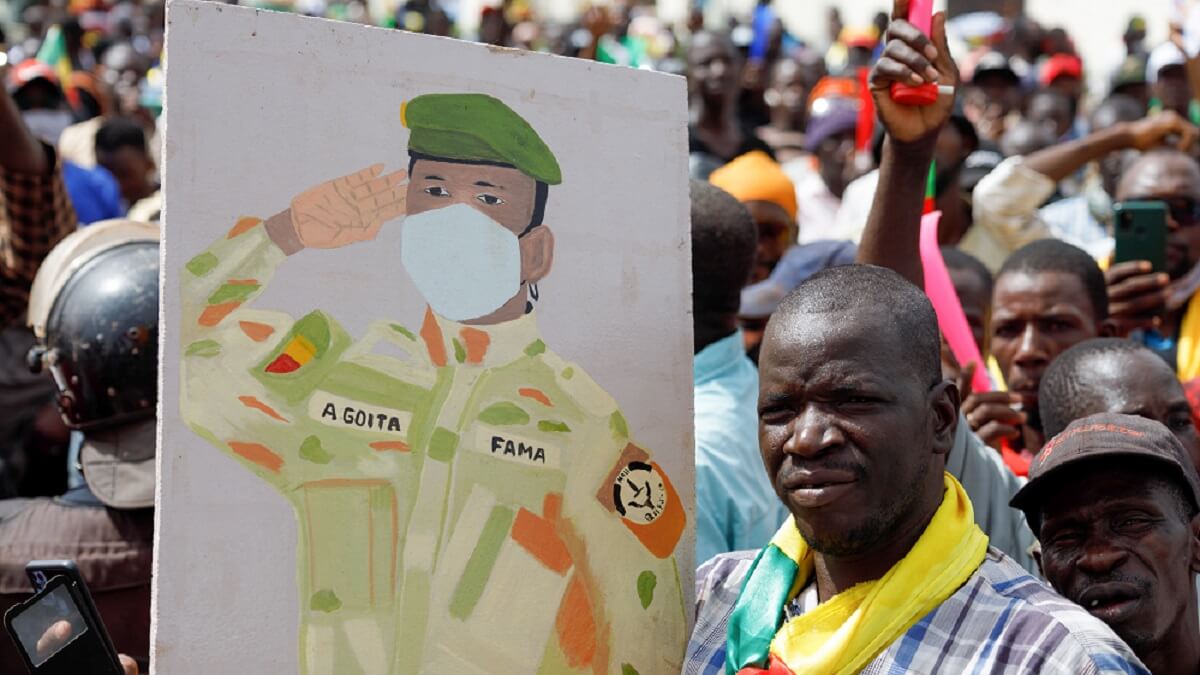Burkina Faso and Niger leave the G5 Sahel and expose the group's weaknesses

The alliance that was born as a response to the terrorist threat loses two members and the crisis that began in Mali deepens. After its departure in May, the G5 Sahel was badly affected and plunged into a crisis that is now experiencing what could be its final blow. The coups in Burkina Faso and Niger put the entire region on notice. Stability, already conspicuous by its absence in the Sahel, was finally dynamited by what is now confirmed as the abandonment of the alliance.
The communiqué issued jointly by the two administrations states that Niamey and Ouagadougou "decided, with full sovereignty, that Burkina Faso and Niger will withdraw from all bodies affiliated with the G5 Sahel, including the joint force", with immediate effect. Thus, the group that was born with Mali, Burkina Faso, Niger, Mauritania and Chad is now made up of the latter two. The two who are now leaving the G5 believe that "the organisation faces difficulties in achieving its objectives".

The association, which was born in 2014 with the intention of eradicating terrorism, is now left stranded by the departure of more than half of its members. All of them have suffered coups d'état in their recent history. The arrival of military regimes in the Sahel has predictably brought the little stability that the G5 had tried to bring to the region to an end. A task that it carried out, moreover, thanks in part to financial aid from the European Union.
It was in 2017 when, in view of the growth of terrorism in the Sahel, a joint military force was launched. This step was also motivated by the manifest weakness of the armies of the five states. Now, with more than half of the members outside the G5, the idea of a new alliance - between the two that have just left the G5 and, predictably, Mali - is emerging as a response to the failure of this attempted bloc against terrorism, which has failed to withstand a series of coups that reached their peak in Niger in July this year.

Both Burkina Faso and Niger understand that the organisation is under "the control of foreign partners working for their own interests in ousting the Sahelians". They believe that the G5 is currently looking after foreign interests rather than those of the Sahelian countries themselves, blaming the alliance for not recognising the latter's right to sovereignty.
However, what this departure of Burkina Faso and Niger confirms is the weakness of a region that, in addition to suffering from the terrorism that motivated the creation of the G5, is increasingly threatened by military regimes. An amalgam of de facto military-controlled states is being created in which the tendency should be to continue to plunge many of these countries into poverty and decadence.

Even the aforementioned EU aid to the G5 failed to unite these states, which see enemies in what should be allies. This opens up an even more complicated moment. One of the few alliances that was supposed to look after the tenuous situation in the Sahel is doomed to fail - if it is not already considered to have done so - and the coups only continue to plunge the region into a pit of chaos and insecurity.








